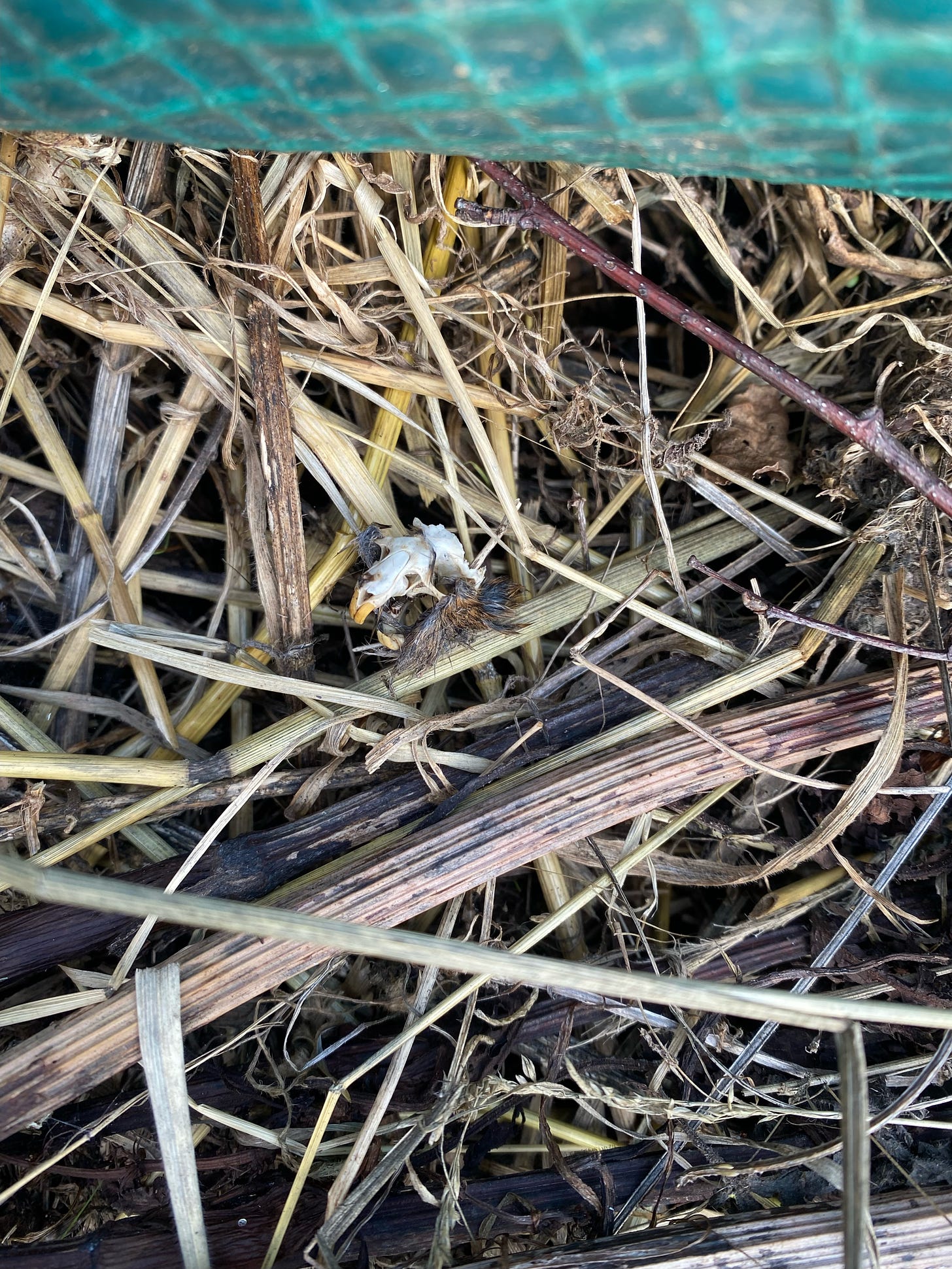I recently moved to Devon in southwest England, to start a master’s degree in mythology. The college also runs a course in regenerative farming, and in my breaks, I find myself drawn to a compost heap in the farming students’ field.
It’s a composty time of life for me. Over the last few years, so many of the stories I’ve been living and telling have, by turns, gone to seed, run rampant, or withered and died on the vine. The stories I’m composting include the story of myself as a married person living in the United States, the story I spent five years spinning in the form of a novel I then put in a drawer, an elaborately imagined story of a now canceled future, an old story about the need to prove myself, an old story about the role I serve in relationships and communities and the wider world. And that’s to say nothing of the broader stories I’ve internalized: about what it means to be a woman, an English person, a European, a human.
What does it mean, to compost a story? It’s not an act of deliberate destruction, nor one of will. It’s certainly not violent. It’s more of a submission. It recognizes that nothing lives forever; that all creation begins with liquification, with the breakdown of boundaries and the alien fusions that follow; and that everything shares the same ultimate fate: rot, and the slow, polyphonic metamorphosis of rebirth.
I owe this beautiful, life-giving image to the writer and mythologist Sophie Strand. Here she is, in an essay called “Confessions of a Compost Heap”:
What then is decay? Watching a compost heap transform into fertile soil, it can seem like decay is genesis. Decay is the first scene in a comedy of mycelial threads and millipedes and sprouting wildflowers, seeds invisibly deposited by a bird flying overhead. Sometimes I think about death as being the transition from a solitary aliveness to an anarchic polyphony of aliveness.
Strand’s work centres on the need to compost old cultural stories that have run rampant outside of their original ecosystems. Foremost among them, for her, is the story of Christianity as coopted by the Roman Empire, such that Jesus’s teachings—originally radical stories deeply entwined with the natural world in a specific time and place—were over-fertilized and genetically engineered until they became a monocrop serving an imperial, patriarchal agenda. Composting that story, Strand suggests, would allow its intrinsic life force to melt down and regenerate in forms that are healthier for the current contexts, and create room for a more vital ecosystem of local cosmologies, too.
As for me, one of the dominant stories in my personal compost heap right now is the hero’s journey. The letter I sent to you last week read straight from the Joseph Campbell playbook. I talked about the tripartite journey that constitutes the hero’s journey: the departure, the initiation, and the return. I talked about the difficulty and loneliness of returning to an uninitiated society after a soul journey.
I’ve lived by this story, deeply. Without ever meaning to, I played it out, almost to the letter. And I know from my inbox that it resonates with a lot of you, too. So many of you sent me beautiful responses to last week’s letter, telling me of the parts of you still waiting for your trials and their treasures to be truly beheld, and the pain of that waiting.
I wish for each of you, each of us, a campfire. I wish for us all to find a version of the return we long for.
And I want to suggest that we might create that return ourselves, in a first loving step towards allowing the hero’s journey to compost.
What might that look like? Well, first: composting is a natural process. You can help it along its way by adding moisture and keeping it warm. But you can’t control it or will it, and you can’t manipulate the outcome. If we compost the hero’s journey, there’s no knowing what kind of stories might someday spring from its soil, though we can hope that they might be infused with an earthier, more connected sense of how to locate and live whatever it is that you’re supposed to give.
Who knows? All we know to start with is that composting is a process of breaking down; of boundaries blurring, fracturing, and melting away. So our composting of the hero’s journey might begin with surrendering our edges. While we stand at the village gates, waiting for our welcome, waiting for our campfire, we might listen to each other’s stories. And in listening, we might for a moment empty ourselves of the burden of our own journeys. We might hear echoes of our own tales coming from others’ mouths, and sense the presence in all these tales of other lives too, human and nonhuman. Of lovers and teachers, blackbirds and hawthorns, voles and entanglements of mycelia, and everything else we met but might not have given its due as we walked the tangled woods.
More than anything, composting starts with humility. And I suppose that’s where I want to leave this letter. Not standing at the village gates singing of my own bravery and hardships, or of getting the shit lovingly kicked out of me by the gods. But simply sitting in a compost heap in the farmers’ field, with the spiders and the straw and the earthworms, and with the jaw of a rat, broken down to polished bone, one tuft of fur still clinging on where a mouth used to flap, singing this rat’s own song.
Love,
Xx Ellie



This is water to a parched soul.